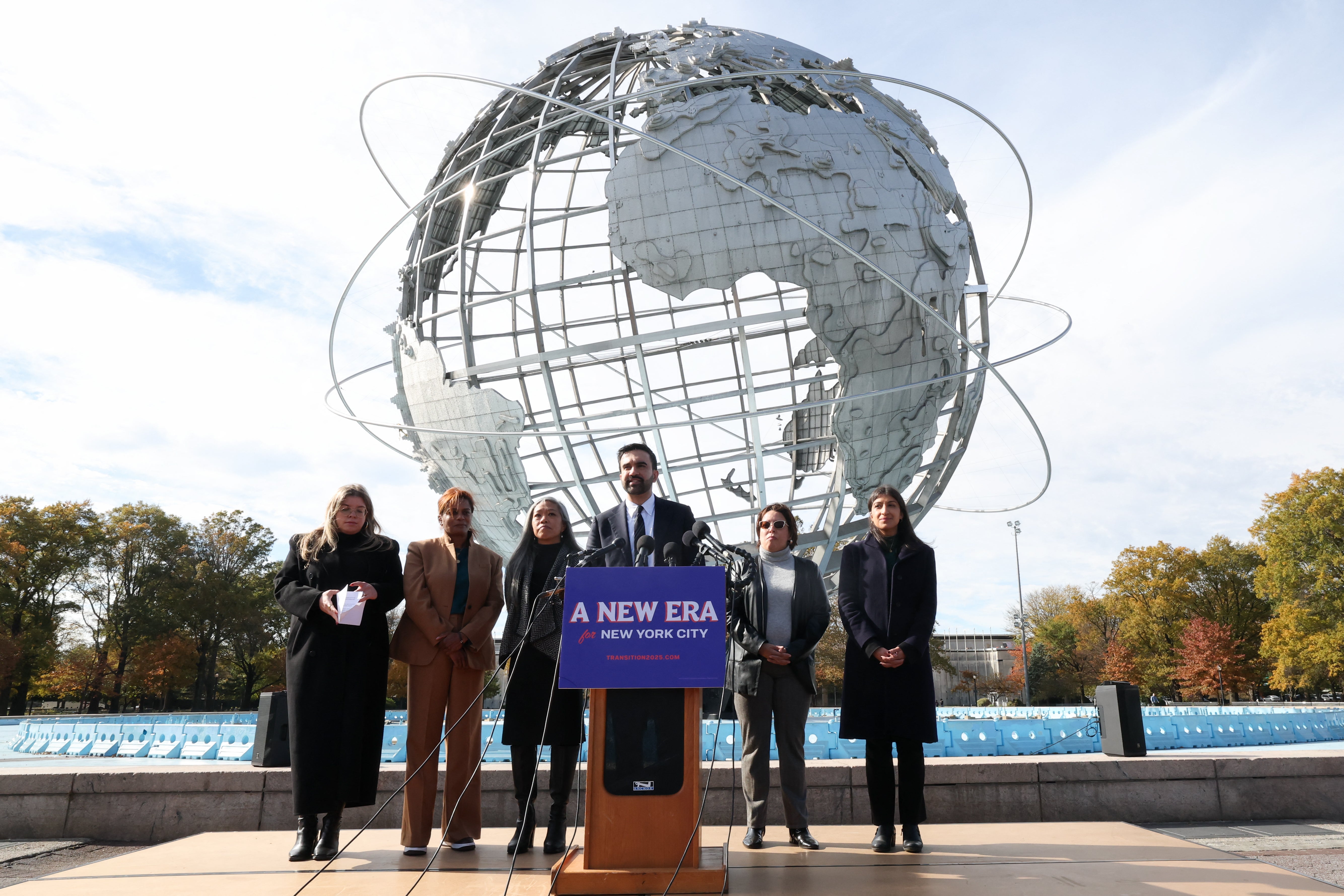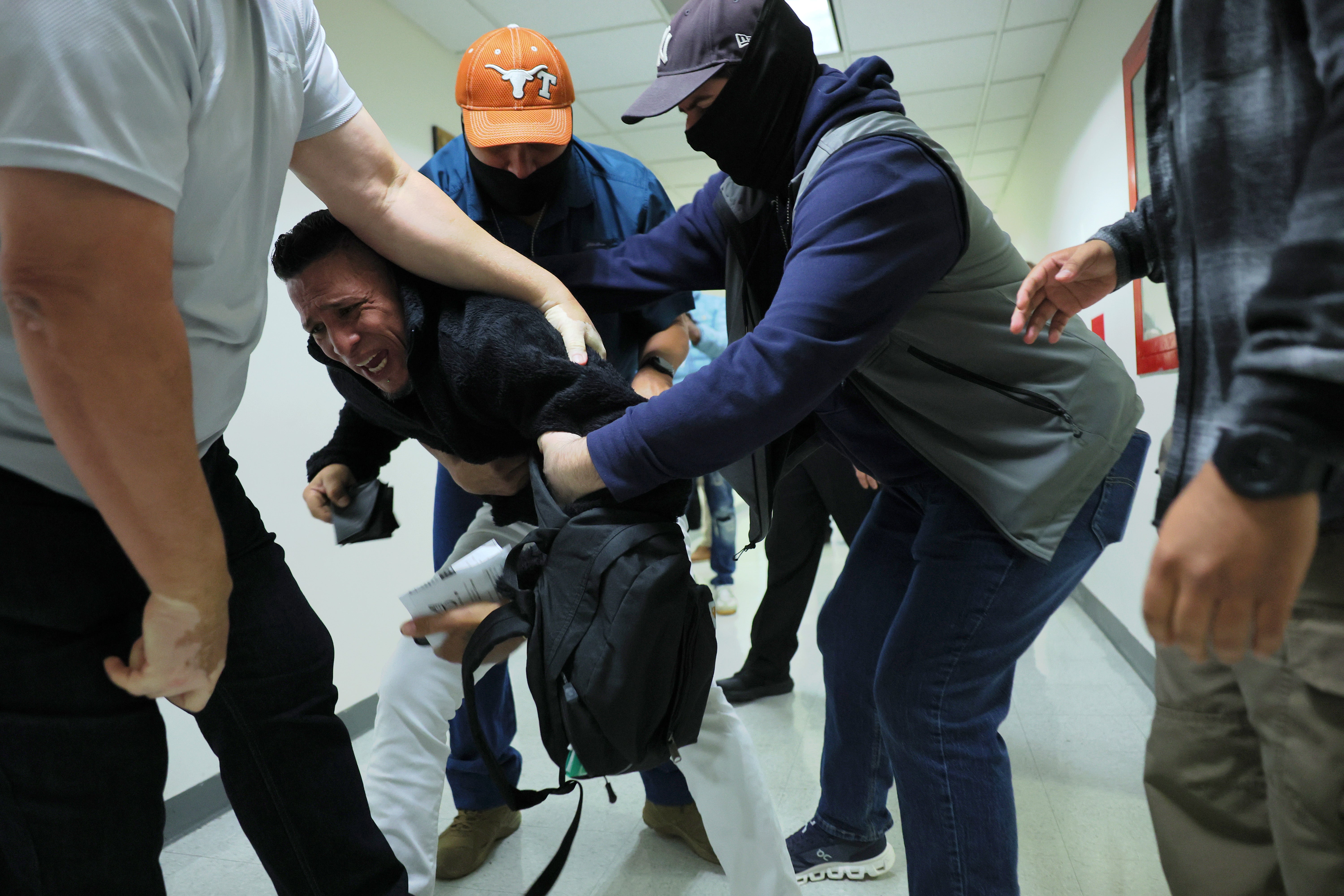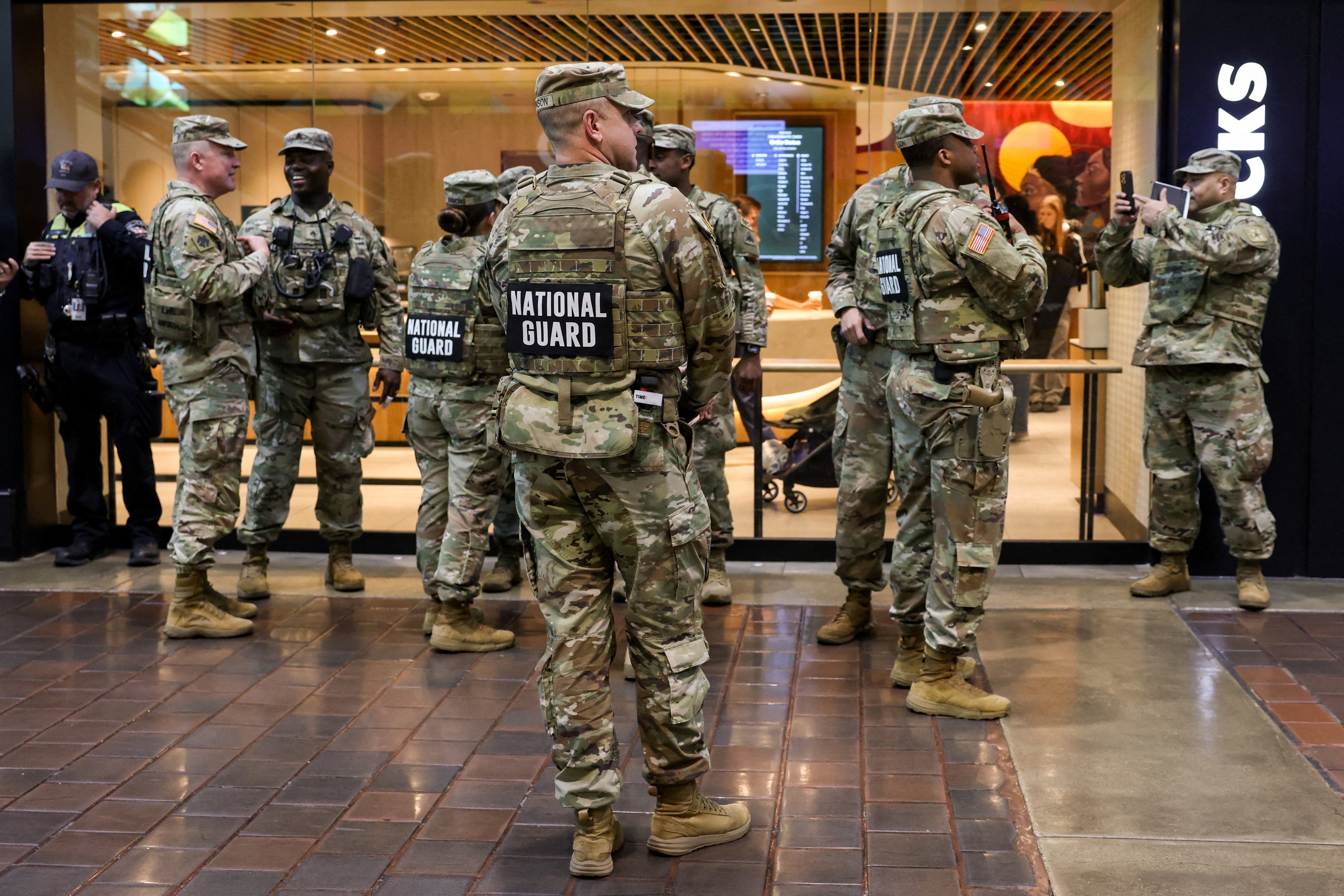Even as he pushed to focus his campaign on affordability in one of the world’s most expensive cities, New York City’s mayor-elect Zohran Mamdani still had to contend with Donald Trump.
Mamdani told supporters before election day that New Yorkers face “twin crises” of an “authoritarian” Trump regime on one hand and a mounting cost of living crisis on the other.
For months, the president has repeatedly questioned Mamdani’s citizenship, falsely branded him a communist, threatened to arrest and deport him, suggested his administration will “run” New York and let troops “clean up” the city, and threatened to pull billions of dollars in federal funding from a city with more than 8 million residents.
On Monday, Mamdani’s opponent Andrew Cuomo said Trump would “send in the National Guard to New York" if Mamdani wins.
After Mamdani’s decisive victory in Trump’s hometown, what can the president actually do, and what pressure points is he likely to strike?
“Donald Trump, since I know you’re watching, I’ve got four words for you: turn the volume up,” Mamdani said in impassioned remarks to supporters Tuesday night. “If anyone can show a nation betrayed by Donald Trump how to defeat him, it is the city that gave rise to him.”
What is Trump planning?
Before election day, in a post on his Truth Social platform, Trump wrote that if Mamdani is elected, “it is highly unlikely that I will be contributing Federal Funds, other than the very minimum as required, to my beloved first home, because of the fact that, as a Communist, this once great City has ZERO chance of success, or even survival!”
In an interview with CBS’s 60 Minutes that aired Sunday, Trump said “it’s gonna be hard for me as the president to give a lot of money to New York, because if you have a communist running New York, all you’re doing is wasting the money you’re sending there.”

But it’s Congress — not the White House — that dictates how federal funds are allocated to each state. The Trump administration is waging several high-profile legal battles over its attempts to unilaterally freeze federal spending approved by Congress.
Trump’s attempts to block congressionally approved funding, without support from Congress, amounts to an unconstitutional “impoundment,” according to an avalanche of lawsuits against the administration.
The Trump administration — using cover of the government shutdown — has already threatened billions of dollars in federal funding for New York, including money for critical transportation projects.
How much does New York City get in federal funding?
New York City’s proposed 2026 budget relies on $7.4 billion in federal funding, accounting for 6.4 percent of total spending, according to the office of New York State Comptroller Thomas P. DiNapoli.
The city’s 2025 budget relied on roughly $9.7 billion in federal funds, or 8.3 percent of total spending, including $1.1 billion in COVID-19 pandemic funds. The 2026 budget dropped by nearly $2 billion largely due to the end of pandemic-era funding.
But most federal funding is used to support education as well as housing and social services agencies.
The city’s largest federal award comes from the Temporary Assistance for Needy Families program, which funds public assistance grants and other social services. That money supported an average of 146,189 family assistance recipients in 2024, and nearly 44 percent of the planned costs for family shelter operations at the Department of Homeless Services in 2025.
Will Trump send in the troops?
The president has surged federal immigration officers and state National Guard troops into Democratic-led cities across the country, alleging city and state officials are failing to cooperate with his mass deportation agenda.
Democratic officials suing the president to stop the surge have argued that the president’s threats are designed to stir up unrest to justify his occupation of American cities.


Trump has not explicitly threatened to put boots on the ground in New York, though the city is one of the flashpoints of his anti-immigration agenda, with sweeping arrests at immigration courthouses and on the streets of Manhattan.
Mamdani clashed with Trump’s border czar Tom Homan during his visit to the state Capitol earlier this year, days after federal agents arrested green card holder Mahmoud Khalil.
After his election night victory, Mamdani said he won’t be “intimidated” by Trump’s potential threats to deploy the U.S. military to New York.
“His threats are inevitable,” Mamdani told ABC’s Good Morning America Wednesday. “This has nothing to do with safety, it has to do with intimidation.”
If it was safety, Mamdani said, then Trump “would be threatening to deploy the National Guard to the top 10 states of crime, eight out of which are all Republican-led.”
“But because of that party, he won’t actually be doing it,” he said.
Mamdani was born in Uganda and moved to the United States at 7 years old. He grew up in Queens — the same borough where the president was born, a handful of miles apart from Mamdani’s Jackson Heights neighborhood.
“New York will remain a city of immigrants, a city built by immigrants, powered by immigrants, and, as of tonight, led by an immigrant,” Mamdani said in his remarks Tuesday night. “Hear me, President Trump, when I say this: To get to any of us, you will have to get through all of us.”
But Mamdani has repeatedly said he would work with the president on issues related to affordability — pointing to Trump’s own campaign promises to ease the cost of living in the country.
“I have said time and again that I will work together to deliver on his campaign promises of cheaper groceries or a lower cost of living,” he told NY1 Wednesday. But for too long what New Yorkers have seen is a mayor who has been work with the president at the expense of those New Yorkers,” Mamdani said. “I want to make it clear that if the president wants to come after the people of this city, then I will be there standing up for them every step of the way.”







